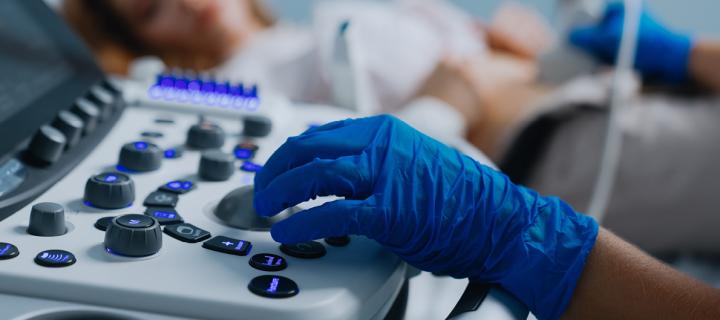Doug Gibson, laying the foundations for success
Dr Doug Gibson, Sir Henry Dale Fellow in the Centre for Inflammation Research (CIR), centres his research around endometrial repair, a process essential to female reproductive health.

Common reproductive health problems associated with dysregulated endometrial repair, such as heavy menstrual bleeding and endometriosis, cause debilitating, lifechanging symptoms for millions of women, yet it remains an underserved area of research.
Recognising the huge unmet need in terms of new therapies for women’s reproductive health conditions, Dr Gibson was keen to put his energies into research that would find the quickest and most effective route to patient benefit.
Support from the start
Dr Gibson was aware of fellow academics who were taking big strides towards impact by taking the commercialisation route, and he felt it would be the right way for him to accelerate his own research. He made contact with the iTPA team at Edinburgh Innovations (EI), which is dedicated to supporting researchers across all Colleges to develop early-stage translational opportunities identified within their research. The team helped Dr Gibson to pinpoint areas of unmet need, and together they narrowed it down to two areas of his research that had significant innovation potential: endometriosis diagnostics for patient profiling; and targeting a novel disease mechanism for drug development.
Taking advantage of EI’s business development expertise, the iTPA team’s comprehensive knowledge of the funding landscape, and EI’s entrepreneurship training gave Dr Gibson the confidence to move forward with his translational plans.
What's been really nice about the process, is knowing that someone is triaging potential opportunities on my behalf, matching me up with the right ones, and even going as far as helping me to write the grant applications. It’s built momentum.
Within six months of approaching EI, Dr Gibson had won the Institute of Regeneration and Repair (IRR) Early Career Innovation Award and secured the Medical Research Scotland (MRS) Early Career Grant, giving him the funding he needed to pursue both research streams. Since securing these, Dr Gibson has gone on to win further funding from the iTPA £20k Accelerator fund, as well as an award from the MRC IAA.
A new approach
Alongside securing vital funding, Dr Gibson has used EI to develop his skills portfolio. The iTPA team gave him the tools to craft grant applications that can effectively and engagingly communicate his research aims, and which can be understood by the broadest possible audience. This has strengthened his position when making applications in relation to research within or outside of the two streams identified by EI. Entrepreneurship and pitching training programmes have helped Dr Gibson to present himself and his work in the best possible way, allowing him to make an impression on potential partners such as Astra Zeneca, whom he met with by the arrangement of EI. These skills have also proved useful in helping him establish new academic collaborations.
The experience of working with EI has also shaped Dr Gibson’s approach towards research more broadly. With the benefit of training and experience, he now considers potential research projects from the perspective of whether they have commercial potential and how soon they can deliver patient benefit.
It sets a different trajectory when you start thinking that way, you start to see new opportunities, and make faster progress.
Agile, innovative and armed with the tools for success, Dr Gibson is bringing his research steadily closer to the aid of endometriosis patients. Edinburgh Innovations filed a UK Priority patent in July 2023 on his patient profiling diagnostics and is continuing to support further patents and commercialisation of this technology. Doug is pushing on with grant applications for his translational research in drug development. So how would he summarise his experience of working with EI?
It’s provided support, it helped to develop my ideas, to secure funding, to move my research forward, and it’s helped open up possibilities that weren’t there before. You can’t really ask for more, especially of something you’re not paying for!

